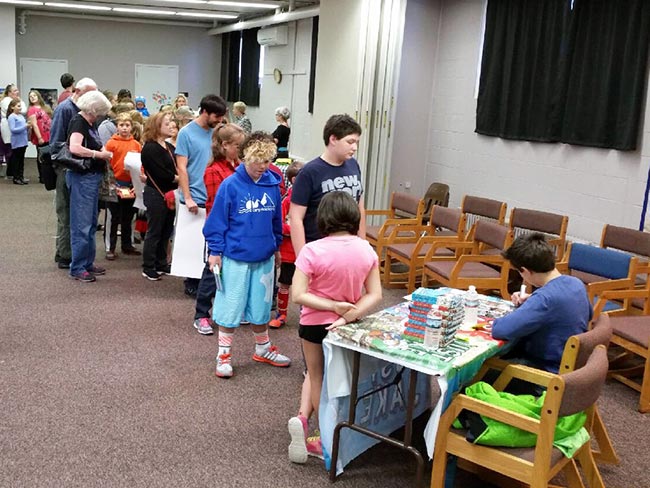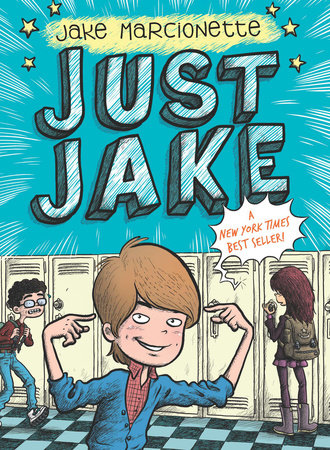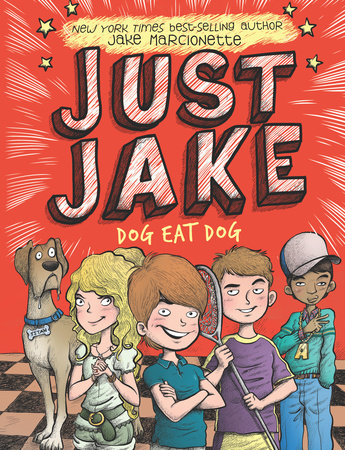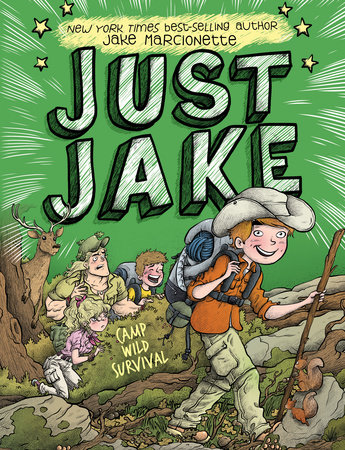Advice from a Kid Author:
How Grown-Ups Can Get Kids Writing
by Jake Marcionette
Jake Marcionette is a typical teenager who loves sports and hanging with his friends. He also happens to be one of the youngest New York Times bestselling authors ever. His book series, Just Jake, is a colorful, diary-style fiction account of the life of Jake Ali Mathews, a not-so-typical sixth grader with a keen sense of humor and a penchant for adventure.
I’ve been asked by the good folks at Brightly to tap out a piece on writing, my process, and tips to help young writers improve their skills, and what follows are my suggestions. Keep in mind that what works for me might not work for you, your kids, or students — BUT without an approach or plan, writing will take a backseat to the multitude of other activities bombarding a young person’s life. And that’s a shame because, as a kid, writing is a muscle that needs to be flexed and developed, as it plays a huge part of our academic future.

So first things first: Here’s how I prepare to write.
My Process
If I’m going to write anything (book, poem, short story, essay), I go through my checklist to ensure “OCS” is operational and ready for engagement. That’s Optimal Creative Space, and for me, it’s a critical component of creativity.
Over the years, OCS is what I’ve developed to tell my brain and body it’s time to write. Athletes stretch before practice, singers go through unusual vocal warm-ups, and checking this list gets me in the “writing zone”:
- Quiet area
- Logged into classical KUSC.org via iHeartRADIO
- Bowl of pretzels — unsalted
- Sparkling water — room temperature
- Chair recline in locked position
- Blank Word Doc open
- Timer set
Without a quiet area, I’m useless. And that might be tough for families in which chaos rules or there exists an annoying sibling (or two). In the past, I’ve used noise-canceling headphones, which work great.
Classical music is my secret weapon. It relaxes me and unlike other music, where I find myself listening to the words, classical music gets me pumped up to write. And it turns out I’m not the only one who finds it stimulating: One study found that students who listened to ten minutes of Mozart before taking SATs scored higher than students who didn’t.
The rest just helps to get me in my happy place. Regarding a timer — I think it is important to place constraints on your writing. Time is precious, so use it wisely. Timers prevent too much daydreaming and force you to get down to business.

How to Promote Writing
Yesssss! We all know “reading” is the rock star of literacy. It gets all the attention when you’re young. But writing is equally important and the two go hand-in-glove. Writing needs to be emphasized, but many struggle with how to do that. It does take more effort but it’s not hard.
1. Be a Writing Role Model
Dear parents and teachers … guess what!? You guys are role models. So, set a good example and practice what you preach. You don’t have to pen the next great American novel, but if you demonstrate excitement in what you’ve crafted — a poem, short story, recipe, work memo, PowerPoint presentation, whatever — you signal to an impressionable kid that writing is important.
2. Forget Journals!
No kid wants to keep a “journal.” Trust me! Instead, suggest your future Hemingways start off by jotting down their daily thoughts and observations in a blog! They can name the blogs anything they’d like — “Ryan’s Reflective Ruminations!” or “Mary’s Maniacal Manifesto.” Anything but a journal! There’re tons of free blog platforms out there, so find one and set it up.
3. Add It to Family Time
My dad used to require that my sister and I be prepared to sit down at the dinner table once a week and lead a discussion about a trending news story. And this wasn’t just a requirement for the kids; both of my parents participated equally. Take that one step further and, instead of printing out the headline, have your child or student write a brief summary of the event — in his or her own words (no cut and paste) — to be read aloud at the table. This exercise serves two purposes: It stimulates interpretive writing AND practices public speaking.
4. Make It Competitive
At home or in the classroom, kids love to compete. You want to control the TV Saturday night? Give kids a fun writing prompt and let them have at it. Remember, sometimes it’s good to reward effort, even if it’s not always the best example of creative writing.
5. Call Off the Grammar Police
There’s a reason red pens are being banished from schools. Criticism can sting! And for kids, it can really hurt and paralyze the creative process. The goal is to encourage writing, so even if Johnny has a tough time with basic grammar, let it go and praise the effort. Mechanics, spelling, and subject-verb agreement will come later.
6. Read More
Sheesh! I know, right?! The more you read, the better you write. To that end, the Just Jake series is a great place to start.
Jake Marcionette is a fifteen-year-old author and lives in Jacksonville, Florida, with his family. His first book, Just Jake #1, published in 2014 to great success featuring national and local televsions spots and a spot on the New York Times Middle Grade Bestseller List. He found his agent at the age of twelve by Googling “how to publish a book” and cold-calling agents. His third book in the Just Jake series, Just Jake #3: Camp Wild Survival published in early 2016.



